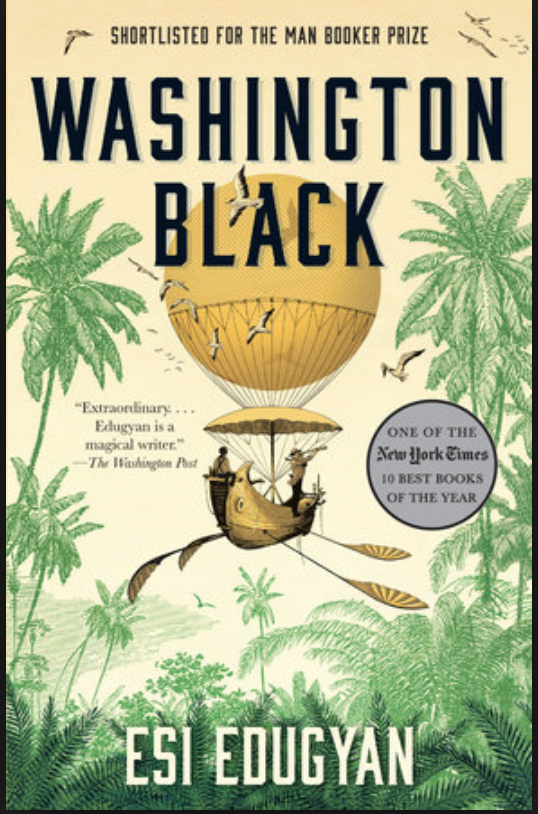Hello Meltingpot Readers,
Even though I’m doing a lot of reading and research for my Black in Spain project, it wouldn’t be summer if I wasn’t also consuming a fair amount of fiction as well. Fun fact, I received the hardcover version of Esi Edugyan’s critically-acclaimed, Washington Black for Christmas, but I bought the paperback version at the airport on my way to Spain in June because in the rush of packing, I forgot to pack it! (I actually forgot the entire stack of novels I’d planned on reading). I was so excited to read this big, epic, “wonder of an adventure story,” about an enslaved boy who travels the world in search of freedom, I decided to spend the money to buy a new copy.
And I’m so glad I did.
Not Another Slave Story
Even though Washington Black begins his life as a slave on a sugar plantation in Barbados, this book is not just another slave story. I initially resisted reading it because I didn’t want to read another depressing tale of evil white masters whipping Black bodies. While there is some whipping and a fair share of violent, evil white men that appear throughout these pages, there are also nuanced portrayals of white, Black and mixed race people as well. But the character we all care about the most, the person whose adventures drive the story is, of course, the title character, Washington Black.
Washington Black
Washington Black is a mere boy when the story unfolds and we see him mature to a man by book’s end. What happens in between ranges from the unbelievable to the amazing. Besides his daring escape from the plantation in a hot-air balloon, there’s also a trek to the arctic, fleeing an overzealous bounty hunter and falling in love with a white woman, who is not exactly what she seems. The story zigzags from the Caribbean to the United States and Europe, all at a page-turning pace. Still, while Washington experiences a life most men – white or Black – could never dream of, his is still one constricted by race and shrouded in violence.
Daddy Issues
Even though Washington Black is a story ripe with adventure, at its core, it is a story of a man yearning for a family. And how does a man enslaved at birth, ripped from his biological family define family? This is the emotional core of the story. Washington has an adopted father of sorts in the man who becomes his master, a man who has his own daddy issues to contend with throughout the story.
Esi Edugyan is such a talented storyteller (Check out her other book, Half-Blood Blues) she is able to bring both of these men to life in such a way that readers will feel completely absorbed in both their physical and emotional journeys. There is no need for a spoiler alert, but suffice it to say, there is no perfect happy ending for Washington Black or any of the other central characters in this novel. Still, the ending of this grand adventure is satisfying and left this reader feeling hopeful.
Final Thoughts
Washington Black was one of the New York Times‘ 10 Best Books of the Year, it was shortlisted for the Man Booker Prize and it is now a nominee for a Hurston Wright Award in the category of fiction. I would add it to any book club list and think it would be an excellent book for high school curricula. There is so much to unpack in this book, from family bonds, to the transatlantic slave trade in the Caribbean and Europe, to the 19th century scientific community, to hot air-balloon innovations! I think Esi Edugyan should get an award just for the amount of research she must have done to write this extraordinary novel. At the end of the day, I loved this book because it offered a nuanced and refreshing historical narrative of a Black life that is not reduced to life on a plantation.
Has anyone else read Washington Black? Tell me what you thought of this book.
Peace!

